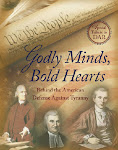Thursday, November 27, 2014
Tuesday, November 11, 2014
Historical significance behind Veteran's Day
Veterans Day started out as Armistice Day to mark the end of World War I that occurred at the 11th hour on the 11th day of the 11th month. Therefore, the day is recognized on November 11.
In 1919, President Wilson stated these words:
"To us in America, the reflections of Armistice Day will be filled with solemn pride in the heroism of those who died in the country's service and with gratitude for the victory, both because of the thing from which it has freed us and because of the opportunity it has given America to show her sympathy with peace and justice in the councils of the nations..."
In 1938, it was made a legal federal holiday.
Though the day was originally set aside to honor the Veterans of World War I with a day of parades and remembrances as well as a pause in activities at 11am on the day, after World War II and the Korean War, Congress recognized we should recognize all of our Veterans.
In 1954, the word "Armistice" was replaced with "Veterans" to include Veterans of all American wars in a day of remembrance for not only those who died in service to our country, but also to recognize those who continue to serve today.
Veterans Day is today celebrated with parades and ceremonies throughout the country. In Washington, D.C., there is a special wreath laying at Arlington National Cemetery.
Thank you, Veterans, for serving to protect our freedoms.
Veteran's Day Remarks by President Kennedy, 1961, click here.
In 1919, President Wilson stated these words:
"To us in America, the reflections of Armistice Day will be filled with solemn pride in the heroism of those who died in the country's service and with gratitude for the victory, both because of the thing from which it has freed us and because of the opportunity it has given America to show her sympathy with peace and justice in the councils of the nations..."
In 1938, it was made a legal federal holiday.
Though the day was originally set aside to honor the Veterans of World War I with a day of parades and remembrances as well as a pause in activities at 11am on the day, after World War II and the Korean War, Congress recognized we should recognize all of our Veterans.
In 1954, the word "Armistice" was replaced with "Veterans" to include Veterans of all American wars in a day of remembrance for not only those who died in service to our country, but also to recognize those who continue to serve today.
Veterans Day is today celebrated with parades and ceremonies throughout the country. In Washington, D.C., there is a special wreath laying at Arlington National Cemetery.
Thank you, Veterans, for serving to protect our freedoms.
Veteran's Day Remarks by President Kennedy, 1961, click here.
Friday, July 4, 2014
“We hold these truths to be self-evident that all men are created equal, that they are endowed by their Creator with certain unalienable rights, that among these are life, liberty, and the pursuit of happiness.”
 |
| Jeniferjernigan.com/humility-yields-freedom |
Sunday, May 11, 2014
Poem for Mother's Day
'Heaven for Mothers'
by Arthur Frederic Otis
I wonder...does heaven give mothers
A sort of separate place,
With clothing to mend
And bruises to tend
And tears on a very small face?
And do you suppose there are minutes
In which there is much to be done,
When breakfast is rushed
And curls must be brushed...
Girls sent off to school on the run?
And do you suppose there are kitchens
With boys seeking something to eat,
And pies, cakes, and jells
And heavenly smells,
Sought out by small pattering feet?
And will there be rugs to be walked on
By shoes not too carefully clean,
And fingermarks small
On woodwork and wall,
Right where they are sure to be seen?
And do you suppose there is darkness,
With small figures kneeling in white,
And tales to be told
And covers to fold
And hands to be held very tight?
There must be...for how else would mothers
Find joy that is promised above,
When all of their days
Are spent finding ways
Of serving the children they love?
Sunday, April 20, 2014
Did the resurrection of Jesus evolve as a story from ancient myths?
They tell how you turned to God from idols to serve the living and true God, and to wait for His Son from heaven, whom he raised from the dead--Jesus, who rescues us from the coming wrath. 1Thessalonians 1:9-10
Why should the story of Jesus' resurrection have any more credibility than tales of dying and rising gods such as Osiris, Adonis, Attis, and Marduk -- that are so obviously mythological?
First, good historical evidence exists for Jesus' resurrection. It's impossible to dismiss the resurrection unless you can refute its solid core of supporting evidence.
Second, T.N.D. Mettinger--a senior Swedish scholar, professor at Lund University and member of the Royal Academy of Letters, History, and Antiquities of Stockholm--wrote one of the most recent academic treatment of dying and rising gods in antiquity. He admits in his book, The Riddle of Resurrection that the nearly universal consensus among modern scholars is that no dying and rising gods preceded Christianity. They all postdated the first century. Obviously, that timing is crucial: Christianity couldn't have borrowed the idea of the resurrection if myths about dying and rising gods weren't even circulating when Christianity was birthed in the first century AD.
Mettinger, however, takes a decidedly minority position by claiming there might be as many as five examples of dying and rising gods that predate Christianity. However after analyzing these accounts he found that none of them serve as actual parallels to Jesus' resurrection story. None of them.
They are far different from the reports of Jesus rising from the dead. They occurred in the unspecified and distant past and were usually related to the seasonal life and death cycle of vegetation. In contrast, Jesus' resurrection isn't repeated, isn't related to changes in the seasons and was sincerely believed to be an actual event by those who lived in the same generation of the historical Jesus. In addition, Mettinger concludes that "there is no evidence for the death of the dying and rising gods as vicarious suffering for sins" and that "the death and resurrection of Jesus retains unique character in the history of religions."
-----Adapted from interview with Dr. Michael Licona
Note: The myth of Attis does predate Christianity. However, there is no reference to his resurrection until at least 100 years after Christ rose from the dead.
Monday, February 24, 2014
Upcoming Oscar Sunday: 'Alone Yet Not Alone has already earned a unique place in history
In 2005, Joni was appointed to the Disability Advisory Committee, U.S. State Department. Joni herself is a quadriplegic, paralyzed from the shoulders down, as a result from a diving accident in 1967.
Now 64-years old, she recently took on the task of singing a low-budget film theme song, "Alone Yet Not Alone," written by Bruce Broughton and Dennis Spiegel.
Sources say "her lung capacity is just 51 percent of what it ought to be -- so weak, in fact, that her husband needed to push on her diaphragm....to give her enough breath to hit the high notes."
Since the song, ever beautiful though it may be, is from an obscure movie, it would escape notice by Academy Award voters if not somehow brought to their attention.
It deserved the simple courtesy, without obligation, of letting the lyrics speak for themselves:
I'm alone, yet not alone.
God's the light that will guide me home.
With His love and tenderness,
Leading through the wilderness,
And wherever I may roam,
I'm alone, yet not alone.
I will not be bent in fear.
He's the refuge I know is near.
In His strength I find my own.
By His faithful mercies shown.
That so mighty is His shield
All His love is now revealed.
When my steps are lost.
And desperate for a guide,
I can feel his touch,
A soothing presence by my side.
Alone, yet not alone.
Not forsaken when on my own.
I can lean upon His arm,
And be lifted up from harm.
If I stumble, or if I'm thrown,
I'm alone, yet not alone.
When my steps are lost.
And desperate for a guide,
I can feel his touch,
A soothing presence by my side.
By my side!
He has bound me with His love,
Watchful angels look from above.
Every evil can be braved,
For I know I will be saved.
Never frightened on my own,
I'm alone, yet not alone.
I'm alone, yet not alone.Since the movie was not part of the elite publicity machine in press releases, gala screenings, or plushy parties with giveaways such as DVD's of upcoming movies, Bruce Broughton decided he could send out e-mails, a total of 70, to simply ask that the song be given a listen. His e-mail read:
"I'm dropping you a line to boldly direct your attention to entry #57...The clip includes the final scene in the film and a performance of the song as used in the beginning of the End Credits. I'm sending this note only because it is extremely unlikely that this small, independent, faith-based film will be seen by any Music Branch member; it's the only way I can think of to have anyone be aware of the song. This is merely a request "For Your Consideration," a hope that the song will get noticed and be remembered among the many worthy songs from more highly visible films."
Tada was thrilled. Her quotes to the Hollywood Reporter include,
"I'm the least likely candidate to record a song for a movie, I'll tell you that up front, so it's amazing. It's amazing enough that a family-friendly movie with a Christian theme is nominated in any category for an Academy Award. Besides The Blind Side, which was wonderful, it's just not the norm.
"I don't know how the nomination process works, but I'm grateful. I think I give a good performance but not a great one, and I think that the Academy recognizing this humble, good little song is rather wonderful.
"Hollywood always talks about the dark horse film, and man this horse is so dark. This is such an out-of-left-field thing. The God of the Bible delights in using ill-equipped, unskilled and untrained people in positions of great influence, everyone from Joseph to David. It's all to show that it's not by human prowess or brassiness, but all by God's design. I don't know if that's what he's doing here, but it's worth giving pause and considering."
A writer of a song that wasn't nominated hired private investigators basically to find a reason why the song should be disqualified. They figured something had to be fishy because how could a little-known song possibly be more deserving of a nomination than a much more visible song performed by professional singers? It was suspected that standards for advertising stated in the Academy’s rules for eligibility were not met. The Academy proved otherwise and dismissed the allegation.
The investigators did not give up. The charge they finally came up with is that arms were twisted and that members of the Academy were afraid not to heartily comply, in spite of the fact that votes were secretly cast. They emphasized that though Broughton currently has no position at the Academy, he was an Academy governor until 2012. Furthermore, they pointed out, he is on the executive committee of the Academy's music branch.
The Academy decided they had a good point. President Cheryl Boone Isaacs stated,
"No matter how well-intentioned the communication, using one's position as a former governor and current executive committee member to personally promote one's own Oscar submission creates the appearance of an unfair advantage."
From Gerald Molen is a colorful and dead-on response to Cheryl Boone Isaacs:
"Every film, director, writer, cinematographer, actor, art director, costume designer and efx house finds a way to pitch or promote their work. Many will see this decision as faith-based bigotry pure and simple."
Critics will pounce and accuse us of being out of touch and needlessly offending middle America by stripping this song -- a song sung by a quadriplegic hero to evangelical Christians who has captured the imagination of the American people -- of its nominationl
In my humble opinion, it seems to me that this has turned a Cinderella story that America loves into a story of the wicked stepmother who wants to keep her daughter from the ball, with we the Academy cast as the villain."
My goodness, if we were truly to operate by this new standard the committee has cited, your office would be filled with returned Oscars from past winners and nominees who have lobbied their friends and colleagues. This seems to me to have been a normal practice for a long, long time, and yet the Academy has suddenly discovered lobbying in the case of this one song?"
It has been reported that a rival film hired a private investigator to find dirt on the film in an attempt to discredit it as not having been advertised properly and that when this failed to sway the committee, a decision was instead made to disqualify it because of the email. I urge you and the Academy to reconsider this decision and restore the song and fairness and integrity to our process."
On the Red Carpet
Screen Crush
Hollywood Reporter
Broughton's response: "I indulged in the simplest grassroots campaign and it went against me when the song started getting attention. I got taken down by competition that had months of promotion and advertising behind them. I simply asked people to find the song and consider it."
For original article, click here.
Screen Crush
Hollywood Reporter
Broughton's response: "I indulged in the simplest grassroots campaign and it went against me when the song started getting attention. I got taken down by competition that had months of promotion and advertising behind them. I simply asked people to find the song and consider it."
For original article, click here.
Update: "Let It Go" from Frozen was winner for best original song.
Subscribe to:
Posts (Atom)
Past articles
- Albrecht Durer
- America helps Israel
- Cambrian Explosion
- Christian Crusades
- Fate of the Apostles
- George Washington - Man of Providence
- Johnny Appleseed
- Judge not that ye be not judged
- Legacy of a great man - Herbert C. Hoover
- Long Live Israel
- Man of rare moral conviction - Joseph McCarthy
- Narcissa Whitman
- Obama is member of a race once officially considered only 3/5 of a person
- Parody - The Patriotic Ghosts
- Salem witchcraft trials
- Someday we'll face eternity
- St. Constantine and the Cross
- St. Patrick
- Statue of Liberty
- The Power of Prayer
- Too good not to share
- Upcoming Oscar Sunday 2014, and one song has already earned a unique place in history
- Who are the Palestinians

























































































